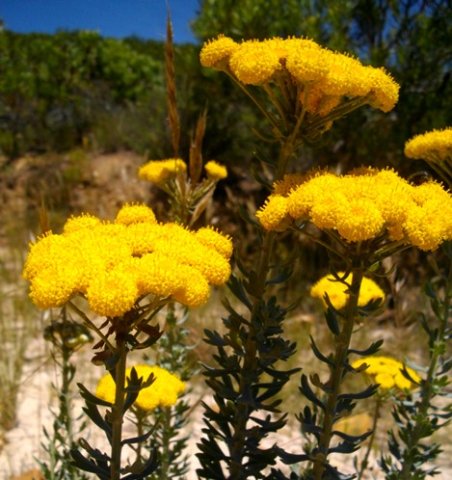Athanasia

Author: Ivan Lätti
Photographer: Thabo Maphisa
Athanasia is a genus of shrubs and subshrubs in the Asteraceae family. The plants may be smooth and hairless or covered in hairs that are more often branched or stellate than simple.
The sessile leaves of most species are alternate and overlapping. The leaf-shape is linear to ovate or spoon-shaped with entire, toothed or partly lobed margins. The blades are usually leathery, sometimes fleshy.
The dense, flat-topped flowerheads comprise only disc florets on linear, urn- or bell-shaped involucres made up of three to five rows of membranous to chaffy bracts that are sometimes glandular.
The name of the genus is derived from the Greek words a- meaning without and thanatos meaning death, referring to the persistent, often dry involucral bracts. At the base of the head there is a flat, often scaly receptacle.
The numerous disc florets are bisexual and fertile, their corollas funnel-shaped and five-lobed, usually bearing glands on the tubes. The florets are usually yellow, rarely creamy white. The anthers have no spurs or tails, the styles branched and truncated with sweeping hairs.
The dry fruits are cylindrical to flask-shaped, ribbed and hairless or occasionally topped with a ring of stalked glands. There is no pappus, occasionally only some glands.
There are 40 species, all occurring in southern Africa and 36 in the fynbos.
The plant in picture is Athanasia trifurcata (Leistner, (Ed.), 2000; Manning, 2007; Wikipedia).

